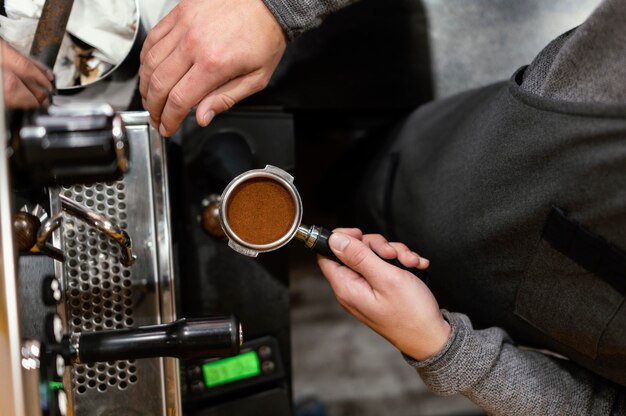
Sponsored article
In the world of coffee production, precision is key, and one of the most critical factors influencing coffee quality is moisture content. Ensuring accurate moisture levels in coffee beans can drastically improve the flavor and aroma of your brew, leading to a superior coffee experience. From the initial stages of harvesting to the intricate process of roasting, understanding and controlling moisture levels is essential for both producers and coffee lovers aiming for excellence in every cup.
Understanding the moisture content in coffee beans is crucial in determining their quality, flavor, and aroma, making it an essential factor for both green and roasted beans. Moisture content, typically ranging from 8-12% for green beans, can significantly impact the roasting process and final cup profile. Excess moisture in coffee beans can lead to mold growth, off-flavors, and decreased shelf life, while too little moisture results in uneven roasting and diminished flavor complexity. For roasted beans, maintaining precise moisture levels ensures optimal flavor release and consistency. Professional roasteries and laboratories rely on advanced tools such as the Difluid Omix Green Coffee Analyzer to achieve these precise measurements. These devices provide critical data that help maintain ideal roasting conditions and storage practices, ultimately enhancing the coffee’s quality. If you’re looking for reliable equipment, consider exploring moisture meters for sale which can optimize your coffee’s potential by providing accurate and continual moisture analysis.
Measuring the moisture content in coffee beans is a crucial step for producers and roasters aiming to optimize quality and flavor. The use of a high-precision coffee moisture meter is one of the most popular measurement methods in the industry. These devices provide quick and accurate results, crucial for ensuring the beans are neither too dry nor excessively moist, which can impact both the roasting process and the overall taste profile of the coffee. Moisture accuracy is fundamental in preventing the growth of mold and bacteria, which adversely affects flavor and safety. There are several types of coffee moisture meters available, ranging from portable handheld units to more advanced, integrated systems for larger operations. Each tool brings its own level of convenience and accuracy, allowing professionals to choose the most suitable option for their specific needs. Other measurement methods include the use of oven drying and Karl Fischer titration, which offer laboratory-grade precision for those requiring the highest level of moisture accuracy.
Accurate moisture control plays a crucial role in maintaining the quality of coffee throughout its supply chain, enhancing consistency from farm to cup. At the farm level, precise moisture measurements ensure that coffee beans are harvested and processed at optimal moisture levels, preventing mold and spoilage during initial storage. As the coffee progresses through the supply chain, maintaining the right moisture content is vital during transportation and storage, safeguarding the beans’ integrity and quality. For coffee roasters, consistent moisture levels contribute to predictable and repeatable roasting outcomes, allowing them to achieve the desired flavor profile and richness in every batch. This consistency is pivotal for roasters who strive to deliver a product that meets consumer expectations. Ultimately, accurate moisture control not only protects the coffee’s natural flavors but also enhances the efficiency and reliability of the entire coffee supply chain, ensuring that every cup of coffee upholds its quality and taste.